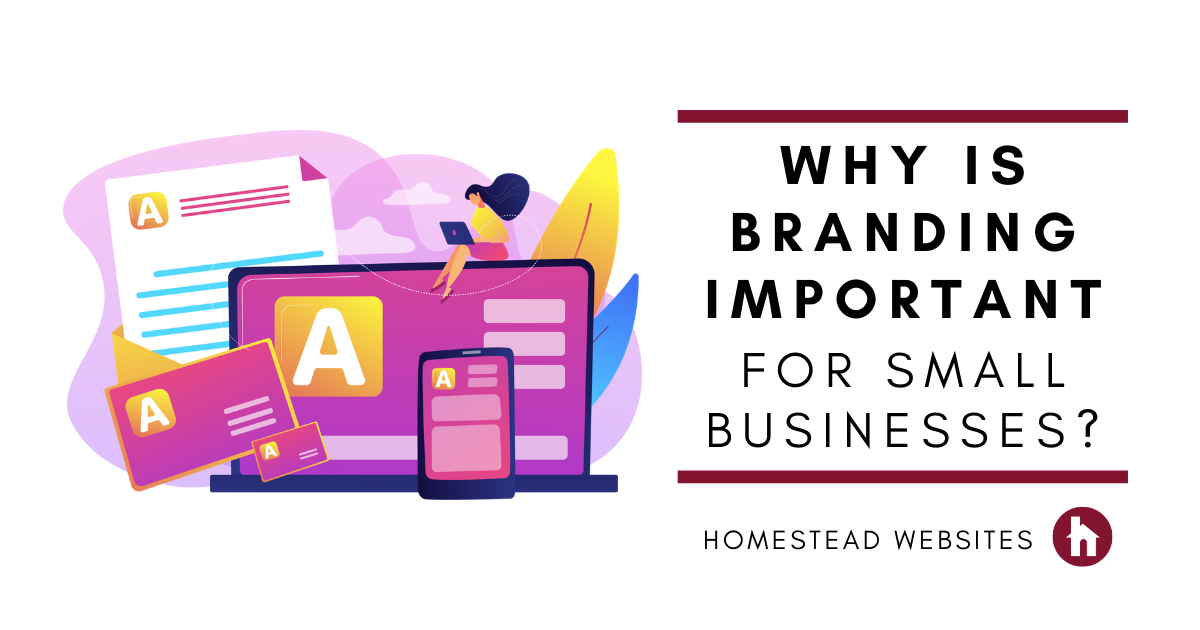677 Messages
•
44.6K Points
Why Is Branding Important for Small Businesses?

Branding may seem scary and intimidating, but it is one of the most important parts of your business, regardless of size. Often, we hear people say “My business isn’t big enough to focus on branding”. The idea that branding is only useful or necessary for bigger businesses is a common misconception. Branding makes a difference in your business, and it encompasses more than just your logo design. It’s everything that makes your business different from the competition, and when you’re trying to make it, even the little things that make you stand out from the rest can make an enormous difference.
Your brand is the customer’s first impression of your business and will breed a sense of familiarity. While a great product, customer support, and hard work have a great deal of value in the workplace, a brand can help round everything out, for a complete, 100% professional package. Establishing your brand doesn’t cost a lot of money, but it does take time. Your brand is composed of your logo, brand colors, design style, sounds, font, personality, tagline, customer service, tone, and other small elements that differentiate your service, and all have an impact on your business’ success. Here are some more things branding will help your business do:
-
Build Recognition:
Your brand improves the recognition of your business, especially when out of context. Your brand is the face of your company when you’re not present. When something like your logo is displayed online or placed on a pen, t-shirt, or flyer, those seeing it will know the product, business, or service that the logo is associated with. It will bring to mind your brand when they see it, and it’s something that people will remember even after their experience with your brand has ended. Since there are already associations, there’s a higher degree of trust that is likely to be experienced. -
Establish what you stand for:
While your brand can (and should) evolve, establishing your brand can help provide some level of consistency to your actions. If one of the original intentions of your brand is to promote eco-friendliness, reflected in your logo design and using green in your brand’s colors, then it’s inherent that you’ll seek out other eco-friendly retailers, participate in events, and make business decisions with that goal in mind, reified through your branding choices. -
Create new relationships. Branding can build relationships with potential partners more than you realize. If you’re focused on local businesses as a brand, then local partners and other businesses catering to the local community will be more likely to work with you for your success. When your brand also resonates with those who may purchase your product or use your services, you’re at a distinct advantage based on this local reputation.
-
Accumulate brand equity. Branding can equal strong brand equity. There are some brands that are synonymous with the product. You ask for a Kleenex, not a tissue. You say Chapstick instead of lip balm. Q-tip is really just a cotton swab. Scotch tape, Post-It note, Sharpie. These are all brands that people think of when they are really just thinking of a specific product. That is the power of brand equity.
Even if you choose not to actively focus on branding, you’re still establishing a brand whether you realize it or not! Your reputation will be built around your business practices, customer service, and product quality; but why not take this into your own hands? As a small business, you have the power to establish, craft, and refine your brand in a way that larger companies can’t. Taking control puts you at an advantage, so you can drive your business exactly where you’d like to.




paul3674
21 Messages
•
342 Points
2 years ago
Good article , Branding very important.
0
0
paul3674
21 Messages
•
342 Points
2 years ago
....
Here are some more pages regarding branding ideas for social media
Dumpster Rental Haledon NJ
Dumpster Rentals in Carlisle, MA (bookyourdumpster.com)
Fast Roll Off Dumpsters in Quincy, MA (bookyourdumpster.com)
Dumpster Rentals in Lynn, MA (bookyourdumpster.com)
Dumpster Rentals in Fall River, MA (bookyourdumpster.com)
Dumpster Rentals in Lawrence, MA (bookyourdumpster.com)
(edited)
0